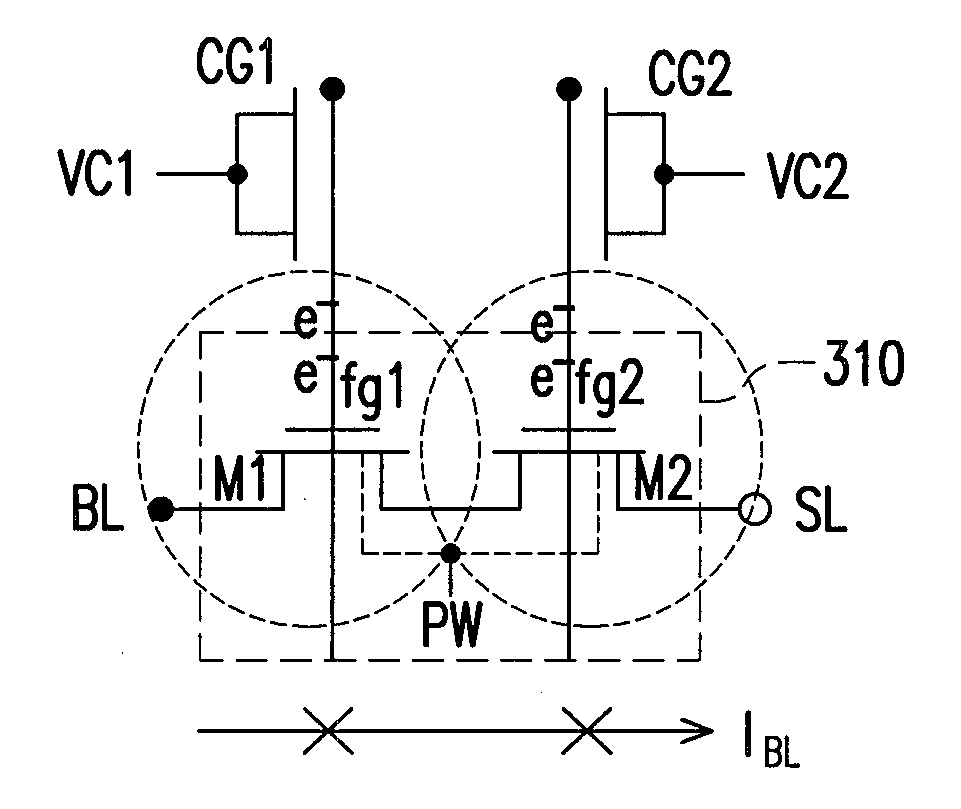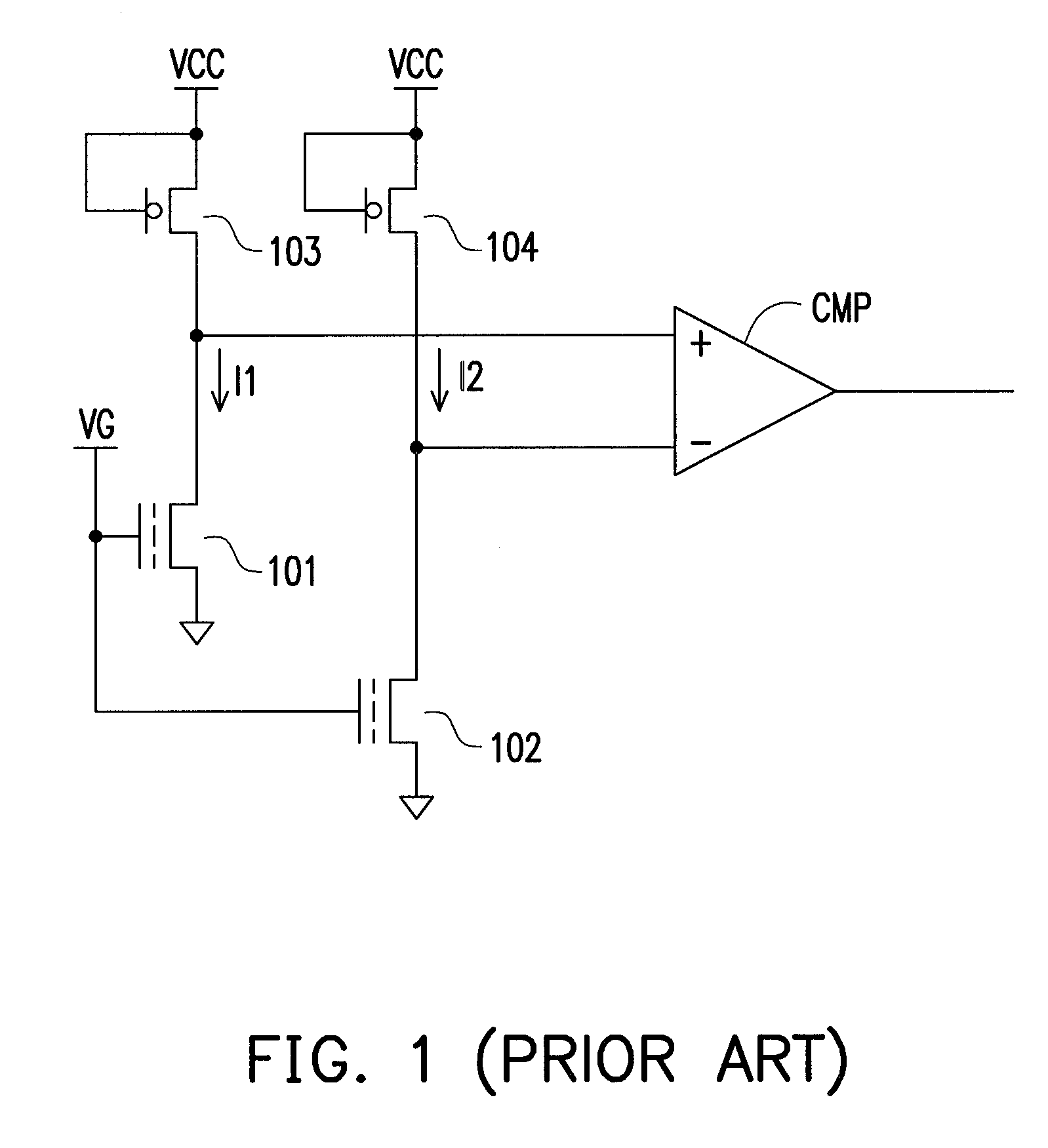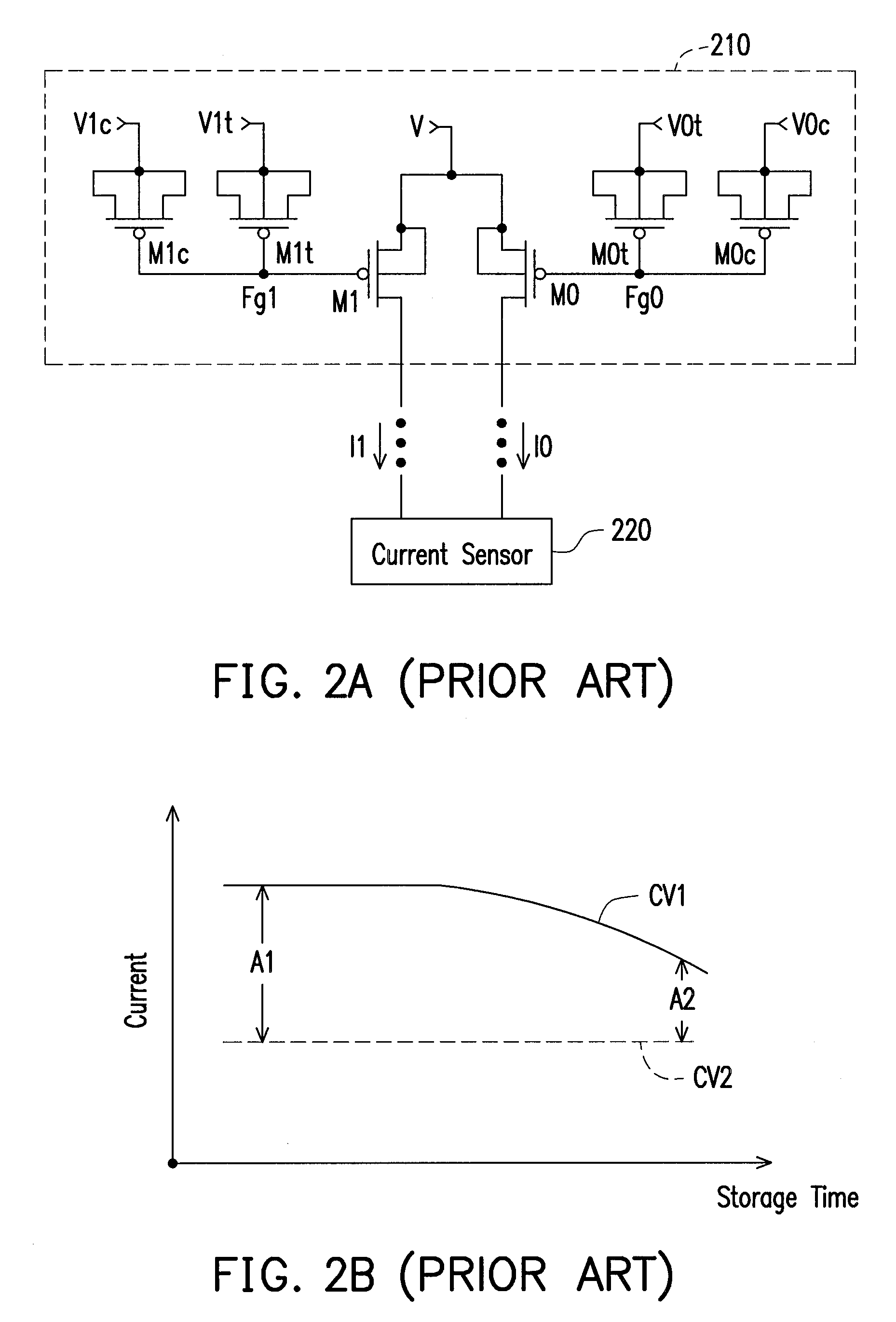Non-volatile memory unit cell with improved sensing margin and reliability
a non-volatile memory unit, sensing margin technology, applied in semiconductor devices, digital storage, instruments, etc., can solve problems such as misjudgment of data stored in non-volatile memory units, and achieve the effect of widening the memory window and improving the sensing margin
- Summary
- Abstract
- Description
- Claims
- Application Information
AI Technical Summary
Benefits of technology
Problems solved by technology
Method used
Image
Examples
Embodiment Construction
[0027]FIG. 3A illustrates an only-one-polysilicon layer non-volatile memory unit cell 300 according to one embodiment of the present invention. In some non-volatile memory technologies, two or more polysilicon layers are processed and stacked to achieve non-volatility purpose. In this embodiment, an only one polysilicon layer is discussed and addressed for a more cost-effective non-volatile memory solution and more suitable for embedded memory applications. Referring to FIG. 3A, the non-volatile memory unit cell 300 includes a transistor pair 310 and control gates CG1 and CG2. The transistor pair 310 includes a transistor M1 and a transistor M2 connected in series. The transistor M1 and the transistor M2 have a floating polysilicon gate fg1 and a floating polysilicon gate fg2, respectively, and the floating polysilicon gate fg1 and the floating polysilicon gate fg2 are electrically or physically isolated. The control gate CG1 is coupled to the floating polysilicon gates fg1 through ...
PUM
 Login to View More
Login to View More Abstract
Description
Claims
Application Information
 Login to View More
Login to View More - R&D
- Intellectual Property
- Life Sciences
- Materials
- Tech Scout
- Unparalleled Data Quality
- Higher Quality Content
- 60% Fewer Hallucinations
Browse by: Latest US Patents, China's latest patents, Technical Efficacy Thesaurus, Application Domain, Technology Topic, Popular Technical Reports.
© 2025 PatSnap. All rights reserved.Legal|Privacy policy|Modern Slavery Act Transparency Statement|Sitemap|About US| Contact US: help@patsnap.com



